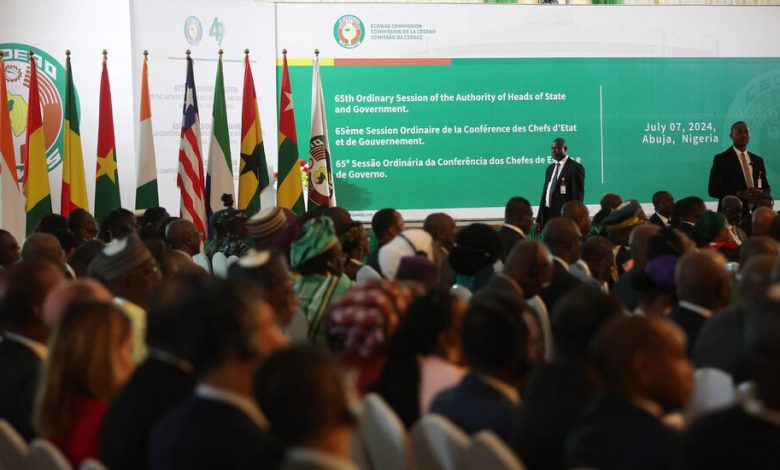Three Countries Exit West African Bloc, Shaking a Fragile Region

Three West African countries have broken away from a 15-member regional bloc that has long ensured free movement of people and goods among its tightly knit economies, further destabilizing an area that is home to nearly 400 million people and threatened by violent insurgents.
The leaders of Burkina Faso, Mali and Niger last weekend announced their “irrevocable and immediate” withdrawal from the bloc, the Economic Community of West African States, known as ECOWAS. They said that they are creating their own confederation.
The three countries, all ruled by military leaders friendly to Russia, span more than half of the bloc’s geographic area and are among its most populous. However, they are not the region’s largest economies, and as landlocked nations, all three depend on access to ports in coastal countries for overseas trade.
“Our region is facing the risk of disintegration,” Omar Alieu Touray, the president of ECOWAS’s executive arm, said on Sunday.
The bloc has appointed Senegal’s newly elected president as a mediator in the crisis. But experts say that the breakup is now underway — and the consequences for people in the region may be stark.
Why are Burkina Faso, Mali and Niger leaving the bloc?
The three countries share borders, cultural and ethnic ties, and recent political history: Military leaders there ousted civilian governments in coups, accusing them of failing to defeat Islamist terrorist groups. The military juntas sidelined presidents, even locking one up in his residence, and refused to relinquish power or organize elections. As a result, ECOWAS imposed economic sanctions on them, hoping to compel the juntas to restore civilian rule.